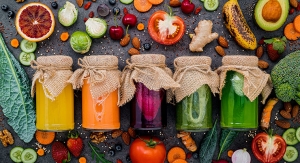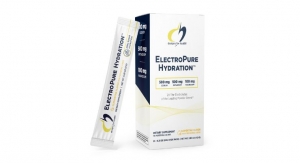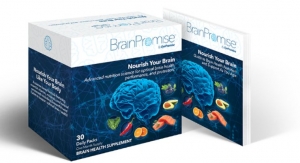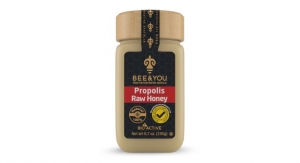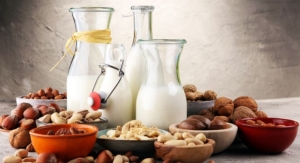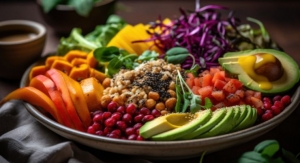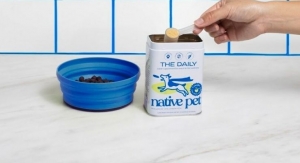By Mike Montemarano, Associate Editor10.08.21
The immune support segment of the nutraceuticals industry has become a fixture in the lives of consumers seeking personalized, everyday products with preventive health benefits. A healthy immune system, which can be difficult to measure subjectively as a consumer, is nonetheless a centerpiece in today’s bigger picture of holistic health and wellness. The category, now thoroughly influenced by the COVID-19 pandemic, continues to evolve.
According to Fortune Business Insights, the immune health supplements market is projected to reach $31.50 billion by the year 2028, exhibiting a CAGR of over 6-7%, continuing to be one of the largest categories within the dietary supplements market as a whole. For perspective, the entirety of the global dietary supplements market is estimated to be in excess of $130 billion.
It seems likely that the disruption in today’s market will leave lasting changes years or even decades from now with regard to the way consumers understand how nutrition influences immune system resilience. The concept of immune health as strictly a seasonal concern, for now, is in the rearview mirror.
Still living with the threat of COVID-19, including current and future variants, healthy immune function will likely remain a top-of-mind issue for many consumers. Facing year-round concerns, the nutraceuticals market has responded with products that incorporate understandable benefits from recognizable ingredients which consumers can integrate into their daily regimens.
“A year ago, nobody really believed that ‘pandemic 2.0’ was a real threat,” said Annie Eng, CEO of HP Ingredients. “It was eventually supposed to be ‘completely over.’ We know that is not the case, and therefore demand for all things immune-protective will likely skyrocket for the upcoming winter season.”
“Product development teams are working feverishly to develop the ‘next best immune product’ after 12-plus months of consumers in a shopping frenzy for immune supplements,” said Leslie Gallo, president of Artemis International, Inc. “Going forward, it will be market diversification with supplement brands striving to develop immune products combining well-known immune ingredients such as elderberry, vitamins C and D, and zinc, with new or lesser-known clinically-validated ingredients and new delivery systems.
“The food and beverage industry is making significant headway to be healthier,” she continued. “Immunity is no longer a supplement-only game. Botanicals such as elderberry saw exponential growth in 2020 and mostly in the supplement realm. This year, many companies are developing fortified beverages, stick packs for hot and cold drinks, confections, and breakfast/power bars because the consumer is looking for immunity in the foods they eat and drink. Phyto-fortification, the addition of plant-based ingredients to make healthier foods, is exploding as consumers are seeking better health in the foods they eat.”
Entry Points
Cost is a barrier, or at least a pain point, in supplement purchasing patterns in general, but market researchers suggest that consumers today are still willing to pay a premium for daily-use products in the immune support category.
“Reduction of sick days is a benefit that appeals both to consumers as well as employers,” said Greg Ris, vice president of sales for Indena USA. “This has resulted in a focus of daily immune support and taking products to maintain and support everyday immune health. I think more companies are talking about ‘daily immune wellness’ than prior. Previously, many consumers took immune products seasonally during cold and flu and allergy seasons. Now, consumers understand the importance of daily immune health and are consuming probiotics and botanicals.”
HealthFocus International believes that premium functional foods and beverages as delivery formats for immune health ingredients are experiencing peak opportunity.
“Consumers believe foods and beverages outperform both prescription medication and supplements in terms of effectiveness and safety. Nearly 65% believe foods and beverages are highly effective for maintaining good health or preventing health issues. This is especially true among 18-29 year-old consumers at close to 80% effectiveness,” HealthFocus International said in its 2021 USA Trend Study. According to the company’s surveys, half of consumers are highly interested in foods and beverages that boost immunity, and 16% of shoppers said they were willing to spend 10% more on foods or beverages that help to boost immunity.
As consumer attention, and dollars, begin branching out from immune-centric products, which served as an entry point for newer consumers in the broader supplements market, success is anticipated for companies whose immune health solutions appeal to broader, more holistic health goals.
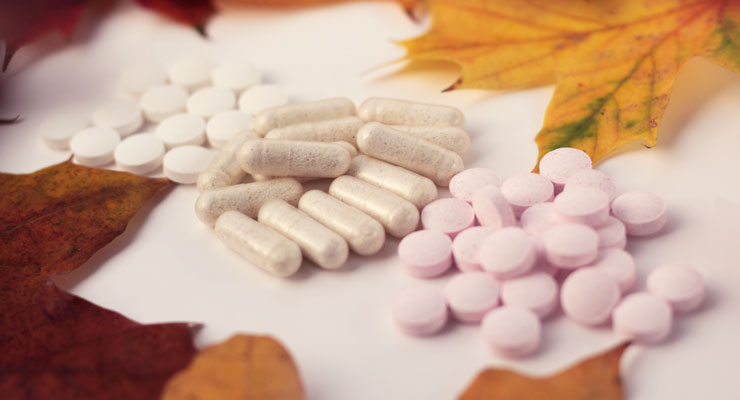
Nuanced Needs
With unprecedented spending on immune health products, today’s consumer is also becoming well-versed about leading ingredients and their potential benefits.
“The internet has provided instant access to health information and natural treatments, allowing users to be as informed as they want and even act as their own doctor,” HealthFocus International’s report said. “This thirst for information continues to drive ingredient trends like turmeric, bone broth, and probiotics as consumers are able to easily make the connection between ingredients and their specific benefits. In addition, traditional, natural therapies have an aura of safety and accessibility and are not cost-prohibitive compared to pharmaceutical options.”
HealthFocus also reported that in the 18-29 age group, belief in foods, beverages, and ingredients having medicinal benefits increased in 41% of respondents, clearly overshadowing shifts in older age brackets, which didn’t exceed 29%.
Factors such as sleep, stress, and exercise levels, age, overall diet, and other factors are becoming key points of focus in the minds of immune supplement shoppers. In a similar vein, consumers have a heightened awareness that poor immune function can result in consequences beyond susceptibility to everyday pathogens, and realize that poor immune function can manifest in fatigue, inflammation, digestive problems, and more.
There is no one-size-fits-all approach to creating a product which can target specialized consumer groups, and people consider a variety of health issues to be signs of poor immune function. When asked by surveyors at FMCG Gurus about what constitutes a poor immune system, for example, Gen Z respondents said “being easily susceptible to day-to-day illnesses,” while Millennials and Gen X identified susceptibility to long-term health problems and difficulty recovering from illness as the number-one signs, respectively. For Boomers, the market researcher said, constant fatigue was the leading sign of a poor immune system.
Everything and Everywhere
It’s clear that recent “kitchen medicine” trends are ushering functional foods and beverages, along with other more niche delivery methods, into the immune support fold. According to HealthFocus, 59% of supplement users believe that the statement “certain foods, beverages, and ingredients have medicinal benefits” is extremely believable, and 31% of supplement users always or usually choose foods that provide protective, preventive health benefits.
Conventional supplement launches in the immune health category have increased at unheard-of rates since 2020. However, market observers also noted how many types of supplements, functional foods, and beverages have been marketed with immunity claims. Sports nutrition, digestive health, mood and sleep, healthy aging, and several other key nutraceutical categories saw new product launches which also touted immune health benefits. At the same time, conventional products are being re-formulated or re-marketed as immune boosters, either due to secondary benefits or to added ingredients.
Basic vitamins and minerals with validated health benefits and consumer familiarity will serve as reliable cornerstones in many multi-ingredient formulas in the immune health space. According to data collected by ClearCut analytics, and presented at SupplySide East in Secaucus, NJ, sales of vitamin D and zinc have proven to be the most resilient despite slowdowns of growth in other immune health ingredients throughout most of 2021.
This could be based on the mainstreaming of vitamin D as a critical immune health ingredient by researchers, mass media, and trade associations such as the Council for Responsible Nutrition (CRN), which launched its “Vitamin D & Me” campaign, a hub of large-scale observational studies and expert commentary on the role that vitamin D plays in immune health.
Vitamin D and zinc have been two of just a few micronutrients piquing the interest of researchers around the globe. Low blood concentrations of these two nutrients in particular have been linked to adverse COVID-19 outcomes in studies published in peer-reviewed journals.
While still limited, observational data, some researchers believe further investigation is warranted, especially given common deficiencies of certain micronutrients in the general population.
Mike Montemarano has been the Associate Editor of Nutraceuticals World since February 2020. He can be reached at MMontemarano@RodmanMedia.com.
According to Fortune Business Insights, the immune health supplements market is projected to reach $31.50 billion by the year 2028, exhibiting a CAGR of over 6-7%, continuing to be one of the largest categories within the dietary supplements market as a whole. For perspective, the entirety of the global dietary supplements market is estimated to be in excess of $130 billion.
It seems likely that the disruption in today’s market will leave lasting changes years or even decades from now with regard to the way consumers understand how nutrition influences immune system resilience. The concept of immune health as strictly a seasonal concern, for now, is in the rearview mirror.
Still living with the threat of COVID-19, including current and future variants, healthy immune function will likely remain a top-of-mind issue for many consumers. Facing year-round concerns, the nutraceuticals market has responded with products that incorporate understandable benefits from recognizable ingredients which consumers can integrate into their daily regimens.
“A year ago, nobody really believed that ‘pandemic 2.0’ was a real threat,” said Annie Eng, CEO of HP Ingredients. “It was eventually supposed to be ‘completely over.’ We know that is not the case, and therefore demand for all things immune-protective will likely skyrocket for the upcoming winter season.”
“Product development teams are working feverishly to develop the ‘next best immune product’ after 12-plus months of consumers in a shopping frenzy for immune supplements,” said Leslie Gallo, president of Artemis International, Inc. “Going forward, it will be market diversification with supplement brands striving to develop immune products combining well-known immune ingredients such as elderberry, vitamins C and D, and zinc, with new or lesser-known clinically-validated ingredients and new delivery systems.
“The food and beverage industry is making significant headway to be healthier,” she continued. “Immunity is no longer a supplement-only game. Botanicals such as elderberry saw exponential growth in 2020 and mostly in the supplement realm. This year, many companies are developing fortified beverages, stick packs for hot and cold drinks, confections, and breakfast/power bars because the consumer is looking for immunity in the foods they eat and drink. Phyto-fortification, the addition of plant-based ingredients to make healthier foods, is exploding as consumers are seeking better health in the foods they eat.”
Entry Points
Cost is a barrier, or at least a pain point, in supplement purchasing patterns in general, but market researchers suggest that consumers today are still willing to pay a premium for daily-use products in the immune support category.
“Reduction of sick days is a benefit that appeals both to consumers as well as employers,” said Greg Ris, vice president of sales for Indena USA. “This has resulted in a focus of daily immune support and taking products to maintain and support everyday immune health. I think more companies are talking about ‘daily immune wellness’ than prior. Previously, many consumers took immune products seasonally during cold and flu and allergy seasons. Now, consumers understand the importance of daily immune health and are consuming probiotics and botanicals.”
HealthFocus International believes that premium functional foods and beverages as delivery formats for immune health ingredients are experiencing peak opportunity.
“Consumers believe foods and beverages outperform both prescription medication and supplements in terms of effectiveness and safety. Nearly 65% believe foods and beverages are highly effective for maintaining good health or preventing health issues. This is especially true among 18-29 year-old consumers at close to 80% effectiveness,” HealthFocus International said in its 2021 USA Trend Study. According to the company’s surveys, half of consumers are highly interested in foods and beverages that boost immunity, and 16% of shoppers said they were willing to spend 10% more on foods or beverages that help to boost immunity.
As consumer attention, and dollars, begin branching out from immune-centric products, which served as an entry point for newer consumers in the broader supplements market, success is anticipated for companies whose immune health solutions appeal to broader, more holistic health goals.

Nuanced Needs
With unprecedented spending on immune health products, today’s consumer is also becoming well-versed about leading ingredients and their potential benefits.
“The internet has provided instant access to health information and natural treatments, allowing users to be as informed as they want and even act as their own doctor,” HealthFocus International’s report said. “This thirst for information continues to drive ingredient trends like turmeric, bone broth, and probiotics as consumers are able to easily make the connection between ingredients and their specific benefits. In addition, traditional, natural therapies have an aura of safety and accessibility and are not cost-prohibitive compared to pharmaceutical options.”
HealthFocus also reported that in the 18-29 age group, belief in foods, beverages, and ingredients having medicinal benefits increased in 41% of respondents, clearly overshadowing shifts in older age brackets, which didn’t exceed 29%.
Factors such as sleep, stress, and exercise levels, age, overall diet, and other factors are becoming key points of focus in the minds of immune supplement shoppers. In a similar vein, consumers have a heightened awareness that poor immune function can result in consequences beyond susceptibility to everyday pathogens, and realize that poor immune function can manifest in fatigue, inflammation, digestive problems, and more.
There is no one-size-fits-all approach to creating a product which can target specialized consumer groups, and people consider a variety of health issues to be signs of poor immune function. When asked by surveyors at FMCG Gurus about what constitutes a poor immune system, for example, Gen Z respondents said “being easily susceptible to day-to-day illnesses,” while Millennials and Gen X identified susceptibility to long-term health problems and difficulty recovering from illness as the number-one signs, respectively. For Boomers, the market researcher said, constant fatigue was the leading sign of a poor immune system.
Everything and Everywhere
It’s clear that recent “kitchen medicine” trends are ushering functional foods and beverages, along with other more niche delivery methods, into the immune support fold. According to HealthFocus, 59% of supplement users believe that the statement “certain foods, beverages, and ingredients have medicinal benefits” is extremely believable, and 31% of supplement users always or usually choose foods that provide protective, preventive health benefits.
Conventional supplement launches in the immune health category have increased at unheard-of rates since 2020. However, market observers also noted how many types of supplements, functional foods, and beverages have been marketed with immunity claims. Sports nutrition, digestive health, mood and sleep, healthy aging, and several other key nutraceutical categories saw new product launches which also touted immune health benefits. At the same time, conventional products are being re-formulated or re-marketed as immune boosters, either due to secondary benefits or to added ingredients.
Basic vitamins and minerals with validated health benefits and consumer familiarity will serve as reliable cornerstones in many multi-ingredient formulas in the immune health space. According to data collected by ClearCut analytics, and presented at SupplySide East in Secaucus, NJ, sales of vitamin D and zinc have proven to be the most resilient despite slowdowns of growth in other immune health ingredients throughout most of 2021.
This could be based on the mainstreaming of vitamin D as a critical immune health ingredient by researchers, mass media, and trade associations such as the Council for Responsible Nutrition (CRN), which launched its “Vitamin D & Me” campaign, a hub of large-scale observational studies and expert commentary on the role that vitamin D plays in immune health.
Vitamin D and zinc have been two of just a few micronutrients piquing the interest of researchers around the globe. Low blood concentrations of these two nutrients in particular have been linked to adverse COVID-19 outcomes in studies published in peer-reviewed journals.
While still limited, observational data, some researchers believe further investigation is warranted, especially given common deficiencies of certain micronutrients in the general population.
Mike Montemarano has been the Associate Editor of Nutraceuticals World since February 2020. He can be reached at MMontemarano@RodmanMedia.com.



